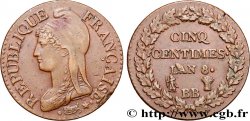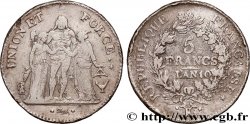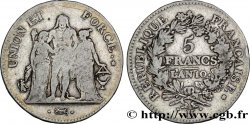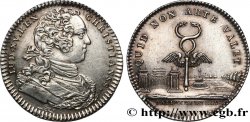fjt_684978 - CONSULATE Nouvelle chambre de Justice de Lyon 1801
120.00 €(Approx. 136.80$ | 103.20£)
Quantity
Add to your cart

Type : Nouvelle chambre de Justice de Lyon
Date: An III du Consulat
Mint name / Town : Paris
Metal : silver
Diameter : 30 mm
Orientation dies : 12 h.
Weight : 8,90 g.
Edge : cannelée
Rarity : R1
Catalogue references :
Obverse
Obverse legend : LOIX SUR UNE TABLE ; À L'EXERGUE EN DEUX LIGNES : AN III. DU CONS./ 1801..
Obverse description : Lion dressé à droite, tenant un bouclier orné d'un foudre de la patte gauche et brandissant une massue de la patte droite, appuyé sur la table de loi.
Reverse
Reverse legend : SOCIETATIS PRÆSIDIVM.
Reverse description : La Justice drapée, debout à droite, tenant une épée levée de la main droite et une balance de la main gauche.
Commentary
Frappe médaille. C'est Bonaparte qui est représenté sous les traits du lion au revers avec les attributs de Jupiter (bouclier orné du foudre) et d'Hercule (la massue) qui s'identifie ici, par un jeu de mot avec le nom de la ville.
Premier Consul, Bonaparte entame la seconde campagne d'Italie. Il prend Milan le 2 juin, bat les Autrichiens le 9 juin à Montebello et à Marengo le 14 où le général Desaix trouve la mort. Le 13 février, il crée la Banque de France et le 17 les préfectures avec 98 départements et 36.000 communes. Le 24 décembre, l'attentat de la rue Saint-Niçaise lui permet d'éliminer l'opposition jacobine. Le 9 février 1801, le traité de Lunéville avec l'Autriche permet de fixer la frontière sur le Rhin. Le 15 juillet, la signature du Concordat avec Pie VII règle le statut de l'Église. Bonaparte est nommé consul à vie en 1802. Il réorganise le Tribunat. La constitution de l'an X confirme ses pouvoirs. La paix d'Amiens, signée le 25 mai, consacre la paix avec l'Angleterre. Le 19 mai 1802, la Légion d'Honneur est créée et le 20, l'esclavage rétabli dans les colonies. Le 28 mars 1803, la loi de Germinal fixe la valeur du Franc pour plus de cent ans. Le 3 mai, Bonaparte vend la Louisiane aux États-Unis. Le complot royaliste de Cadoudal entraîne une répression féroce. Cadoudal est guillotiné, Pichegru suicidé. Le duc d'Enghien, enlevé le 15 mars, est fusillé le 21 dans les fossés du Château de Vincennes. Par sénatus-consulte, Bonaparte devient Napoléon Ier.
Premier Consul, Bonaparte entame la seconde campagne d'Italie. Il prend Milan le 2 juin, bat les Autrichiens le 9 juin à Montebello et à Marengo le 14 où le général Desaix trouve la mort. Le 13 février, il crée la Banque de France et le 17 les préfectures avec 98 départements et 36.000 communes. Le 24 décembre, l'attentat de la rue Saint-Niçaise lui permet d'éliminer l'opposition jacobine. Le 9 février 1801, le traité de Lunéville avec l'Autriche permet de fixer la frontière sur le Rhin. Le 15 juillet, la signature du Concordat avec Pie VII règle le statut de l'Église. Bonaparte est nommé consul à vie en 1802. Il réorganise le Tribunat. La constitution de l'an X confirme ses pouvoirs. La paix d'Amiens, signée le 25 mai, consacre la paix avec l'Angleterre. Le 19 mai 1802, la Légion d'Honneur est créée et le 20, l'esclavage rétabli dans les colonies. Le 28 mars 1803, la loi de Germinal fixe la valeur du Franc pour plus de cent ans. Le 3 mai, Bonaparte vend la Louisiane aux États-Unis. Le complot royaliste de Cadoudal entraîne une répression féroce. Cadoudal est guillotiné, Pichegru suicidé. Le duc d'Enghien, enlevé le 15 mars, est fusillé le 21 dans les fossés du Château de Vincennes. Par sénatus-consulte, Bonaparte devient Napoléon Ier.







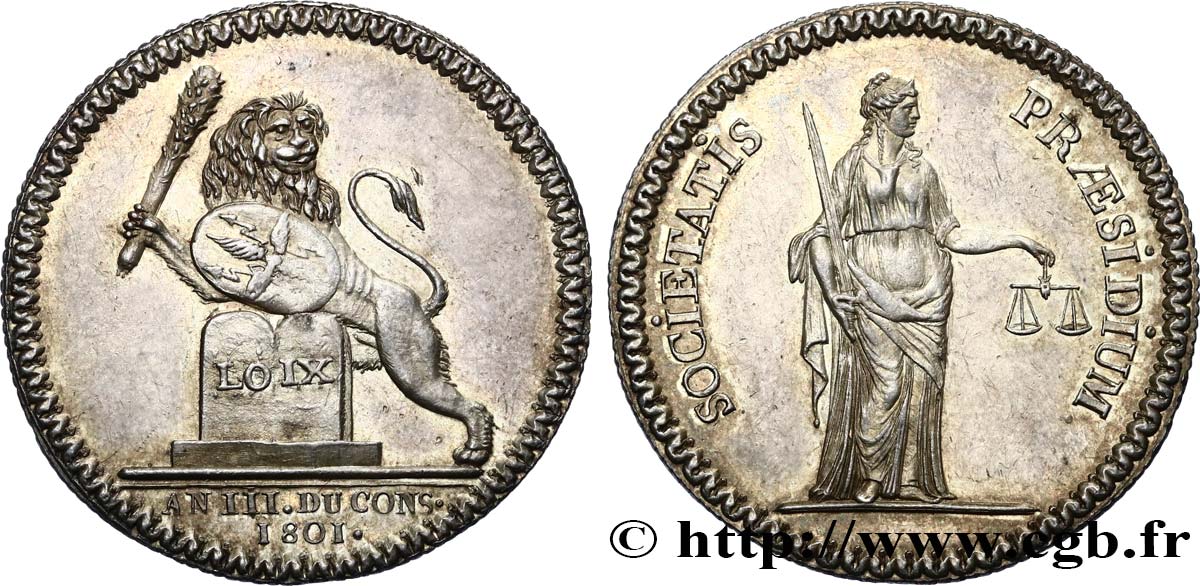
 Report a mistake
Report a mistake Print the page
Print the page Share my selection
Share my selection Ask a question
Ask a question Consign / sell
Consign / sell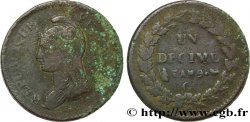
 Full data
Full data